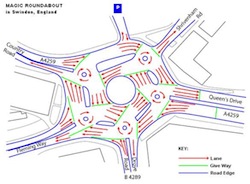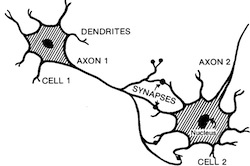A personal note to Tech.pinions readers:
I’m honored by the invitation from Ben and Tim Bajarin and Steve Wildstrom to write for Tech.pinions. I’m also delighted to have this opportunity to reconnect with many old friends from my New York Times and Fortune years, and to make many new friends, and to resume a dialogue about technology that started back when 640K was enough for everyone.
Notice the word “dialogue.” I spell it the old-fashioned way, not the currently fashionable “dialog” – readers of my blog will discover I’m something of a work freak — but the meaning is the same: A conversation between two or more persons; an exchange of ideas and opinions.

Journalism is now a two-way conversation, unlike the old “one-to-many” broadcasting model that for centuries applied to troubadours, town criers, book publishers, newspapers, magazines, radio, television, and Web 1.0. Ideally Web 2.0+ journalism is even more than that, triggering not just two-way dialogue between writer and reader, but also many-to-many discussions among readers.
In other words, I don’t want my writing for Tech.pinions to be just a two-way street; I want it to be a roundabout in downtown Cairo or Rome at rush-hour.
So let’s get started: What shall I write about? You tell me.
What’s the next big thing? What’s happening now in technology, or looming on the horizon, that we need to be discussing now?

Background: In 1984 I started writing a column about personal computers for The New York Times, where I was assistant science editor. In 1992 I convinced the Times to assign me full-time to report about “cyberspace.” I quit to do an Internet startup in 1996. As the Great Wayne Gretsky advised, I’ve tried to skate ahead of the puck, journalistically speaking.
Here’s where I think the puck is going, in terms of technology:
- Bioengineering and its impact on global health and life sciences.
- The Cloud, the reinvention of enterprise IT, and software as services.
- Data security, hackers, cyberwarfare, privacy.
- Robots. When people talk about the post-PC era, they say “tablets” and “smartphones” when they should be thinking robots.
- Environmental sciences and the role of technology.
These are just my Top Five; there will be fascinating developments in mobile technology, commercial spaceflight, nanotechnology, electronic payments, and all sorts of other areas.
Which ones do you think will be most important for the next five years? What am I missing?